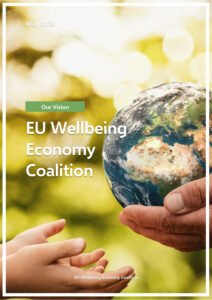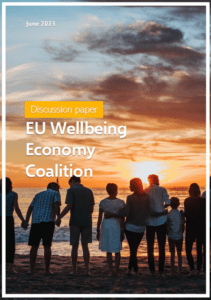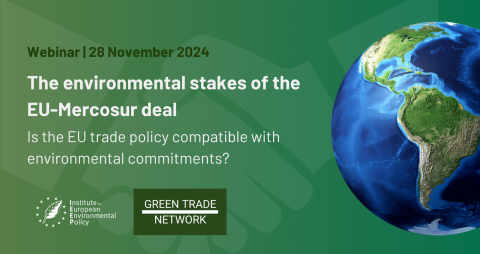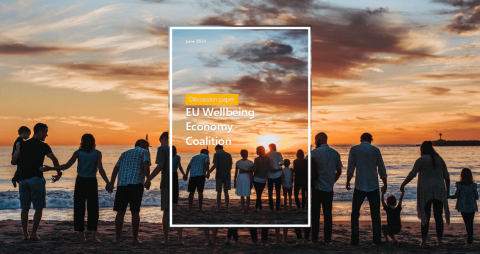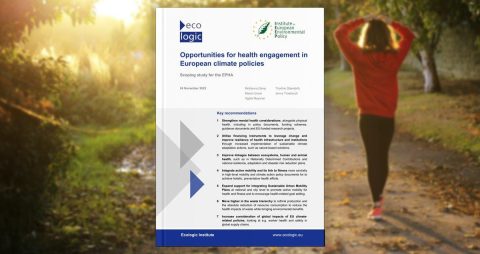EU Wellbeing Economy Coalition
- Home
- Initiatives
- Wellbeing Economy Coalition
Overview
In June 2021 the Institute for European Environmental Policy and the ZOE Institute for Future-fit Economies founded the EU Wellbeing Economy Coalition, a civil society coalition for moving policy beyond economic growth towards a wellbeing economy.
A holistic and transformative approach to policymaking is needed that puts the environment and wellbeing at the core of the agenda and discusses tensions with economic policy objectives in a constructive and open dialogue. The recovery context offers an opportunity to ensure mainstreaming of wellbeing and resilience considerations in the implementation of the European Green Deal and the national recovery plans. What is at stake is how to move forward to an economy that creates wellbeing and contributes to sustainability in a holistic way, i.e., consider the social, environmental, and economic aspects equally, rather than focuses only on traditional objectives like GDP and relying heavily on green technological solutions.
Against this background, the EU Wellbeing Economy Coalition is an informal coalition that brings together various EU civil society organisations, think tanks as well as trade unions active in the fields of wellbeing, around a common mission: to strengthen the narrative, policies, and indicators on human and planetary wellbeing in EU decision-making processes.
We do so by:
- Sharing knowledge, intelligence and expertise;
- Amplifying the individual impacts of our members;
- Advocating together towards EU decision makers.
The informal coalition supports each other in advising and influencing EU policymakers to design coherent policies that have an impact on the wellbeing of people. Moreover, the coalition serves as a sounding board for initiatives that aim moving the EU agenda towards the wellbeing economy and support coordination of activities. By sharing knowledge and expertise and aligning activities and strategies, the coalition amplifies the individual impact of its members. It also acknowledges the specificities of each organisation part of the coalition and as such their specific interest in joining the coalition.
Ahead of the Beyond Growth Conference 2023, the EU Wellbeing Economy Coalition launched their vision for the EU wellbeing economy. The EU Wellbeing Economy Coalition strongly believes that the European Union should place human and planetary wellbeing at the heart of its decision-making processes and structurally move away from an economic system driven by GDP growth. Our vision is a system built around five core interconnected values: participation, fairness, purpose, nature and dignity. To build a wellbeing economy across the EU, we need to take a systemic, holistic approach and realise key transformational shifts. Read more in our Vision Statement.
Building on the contents of the EU Wellbeing Economy Coalition Vision Statement, this Discussion Paper sets out to explore the key components of an envisioned wellbeing economy for Europe, showcasing the knowledge and ideas within our coalition. The paper puts forward proposals within the following policy areas: institutions, civil society, employment, trade, taxation and finance, policy design, business models, emissions and resources, nature and biodiversity, health as well as public services. Each of the ten sections offers an accessible overview of the state of play in Europe, as well as solutions and ideas for the way forward. This is a discussion paper, reflective of our discussions as a coalition, and we warmly invite our readers to join the conversation, share comments and feedback. It’s the first edition of the discussion paper and the coalition intends to publish future iterations to incorporate policy progress, emerging ideas, and input from new stakeholders.
Latest news
- , Blogs
Latest publications
- , Reports


